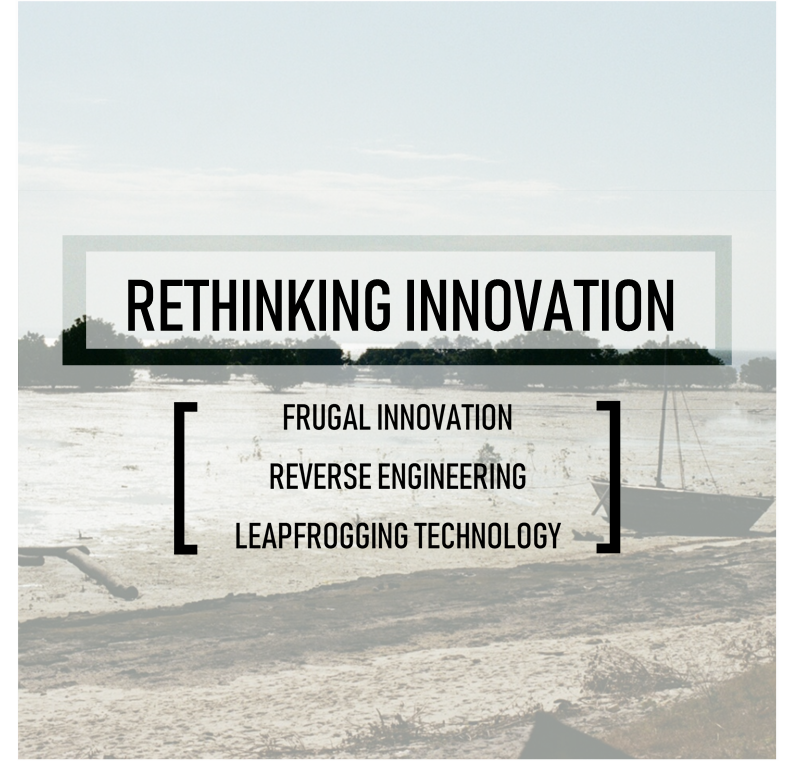Rethinking Innovation: Why the World Needs a Frame-shift
Innovation is a term we often hear. We say that Apple is innovative, so is Facebook and Dyson. However, innovation goes beyond the realm of technology. Innovation is the initiation of an idea through imagination and ultimately, the invention of a novel product when there is enough information. That seems to be a lot of ‘i’s to take in. Basically:
Innovation = Information + Imagination + Ideation + Initiation + Invention
With these concepts in place, it’s no wonder innovation is often associated with digital technology in the 21st century because there have been many ground-breaking digital products. With the same concepts, this was how society advanced in the Renaissance Period with the emergence of new philosophical ideas and in the Industrial Revolution which had the aim to achieve greatest efficiency.
It is with innovation that humanity can keep advancing and achieve even higher standards of living. However, those who really need innovation are not getting it. This can due to how businesses operate in a free market. The demand for the innovation might be there, but those who would truly benefit from it just cannot afford the product. Hence, companies would reduce their cost by placing their products in markets that can afford their products. Even if companies have the aim to create low-cost products, many cannot afford the goods since each cent spent is one less cent available for competing needs.
Despite the struggles, low-resource environments are a fertile ground to rethink technologies, especially in the area of sustainability and affordability. There has been successful innovation that sprouted from such environments, from energy to agriculture, from healthcare to education. One very successful example is M-Pesa, which enabled 93% of the Kenyan population to have access to mobile payments. In a place where it is difficult to travel from rural areas to the city, M-Pesa connects these places and allows people to send money to their loved ones whenever necessary.
Here are some terms often heard in these places:
1. Frugal Innovation
More and more people are thinking of how to develop high-quality products while reducing the complexities and increasing the value of the products. This is called Frugal Innovation. One such example is a fridge made of clay that does not require electricity created by Mansukhbhai Prajapati after an earthquake struck India and all he had was clay.
2. Reverse Engineering
Reverse engineering happens when innovation done in less-developed communities is brought into developed communities. This is what Beth Kolko and her company, Shift Labs, believes in and is doing. By focusing on the needs of less-developed communities, such as unstable electricity supply and shortage of manpower, the company develops low-cost medical devices which managed to get the attention of some US hospitals.
3. Leapfrogging Technology
The immediate adoption of modern technology and bypassing intermediate technological stages is referred to as leapfrogging. For example, a HIV clinic in South Africa makes use of a robotic pharmacy system to prescribe medication to patients. Using this system reduces the errors made and the waiting time.
Indeed, a society’s status is not solely driven by innovation. But if the United Nations recognise increasing innovation as one of the sustainable development goals for 2030, innovation must have a significant role to play in lifting people out of poverty. Like how the UN is proposing a program called ‘STI doctors’ (or ‘Science, Technology and Innovation Doctors’) which consists of foreign professionals to solve technical bottlenecks, InAGlobe Education is also seeking to fill up any voids in resources and knowledge low-resource environments might have. We hope to encourage academic institutions to develop innovative solutions for specific problems a society might have. We believe that innovation has a large role to play in improving the livelihoods of those most in need.
Written By: Jaynell Ng (15/03/2019) - Outreach Volunteer of InAGlobe Education.
Resources
https://businesscollective.com/how-the-leapfrog-effect-may-affect-your-business/index.html
https://www.cairn.info/revue-journal-of-innovation-economics-2016-3-page-9.htm
https://eu.usatoday.com/story/tech/2014/07/09/ozy-third-world-innovation/12401465/
https://mag.n26.com/m-pesa-how-kenya-revolutionized-mobile-payments-56786bc09ef

